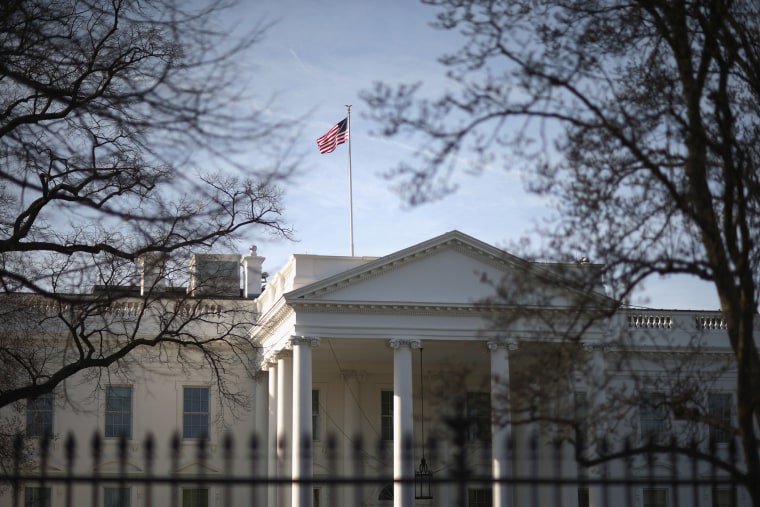The Wall Street Journal had an interesting piece yesterday on the differences between Senate Majority Leader Mitch McConnell (R-Ky.) and House Speaker Paul Ryan (R-Wis.) when it comes to Donald Trump. The former seems to be taking a rather lackadaisical attitude, while the latter holds off on endorsing his party's presumptive nominee.
Both, however, are under the impression that the real power in 2017 will come from their end of Pennsylvania Avenue.
Implied in their message is the assumption that they will be able to protect the prerogatives of the institution because they'll still be running it. And that's part of their underlying point: Keep us in charge, and we'll keep the president -- whoever it is -- in check. Mr. McConnell invoked the balance-of-powers argument when asked in a CBS interview Sunday.... "What protects us in this country against big mistakes being made is the structure, the Constitution, the institutions," he said. "No matter how unusual a personality may be who gets elected to office, there are constraints in this country."
Just on the surface, it's unusual to hear party leaders suggest in an election year that it just doesn't much matter who the president is. Nothing says confidence in your party's ticket like effectively saying, "We'll make sure Trump doesn't really screw up in any kind of catastrophic way."
But digging deeper, it seems there was similar rhetoric during the GOP primaries and caucuses. The constitutional element obviously doesn't apply, but for months, it was common to hear Republicans insiders reassure themselves and each other with talk of party "structure" and "institutions."
No matter how unusual a personality may be who runs for the GOP nomination, there were constraints, the theory went, that prevent a demagogic reality-show personality from becoming a major political party's presidential nomination in the 21st century.
That, of course, was before the "guardrails" started to break.
As much as I'd like to take comfort in McConnell's perspective, what actually protects us in this country against big mistakes are competent, qualified, and responsible public servants in positions of authority. "How bad could he be?" is not a question well suited for a candidate who intends to lead the free world.
The fact remains that the presidency matters -- a lot. It's an enormously powerful office, and the person sitting behind the desk in the Oval Office makes life-and-death decisions on a very regular basis, all while overseeing an executive branch that touches many aspects of Americans' daily lives. Yes, there are legal and institutional constraints, but to think that a Trump administration could be counted on to govern responsibly because there's a "structure" in place that keeps presidents on the right course is folly.
If Mitch McConnell is working from the assumption that he'd help keep a President Trump "in check" for four years, the Senate Majority Leader is likely to be sorely disappointed.
